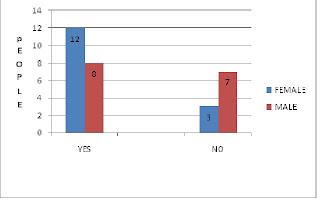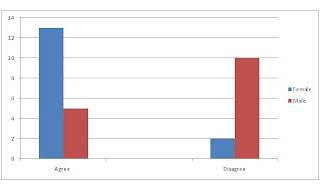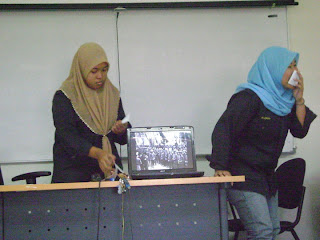Labels
ETHNIC RELATION BLOG
Followers
SEARCH
Thursday, October 28, 2010
BIRO TATA NEGARA(BTN)
RUKUN NEGARA
BAHAWASANYA NEGARA KITA MALAYSIA mendukung cita-cita hendak :
- mencapai perpaduan yang lebih erat di kalangan seluruh masyarakatnya ;
- memelihara satu cara hidup demokratik ;
- mencipta satu masyarakat adil di mana kemakmuran Negara akan dapat dinikmati bersama secara adil dan saksama ;
- menjamin satu cara liberal terhadap tradisi-tradisi kebudayaannya yang kaya dan berbagai corak ; dan
- membina satu masyarakat progresif yang akan menggunakan sains dan teknologi moden.
MAKA KAMI, rakyat Malaysia, berikrar akan menumpukan seluruh tenaga dan usaha kami untuk mencapai cita-cita tersebut berdasarkan atas prinsip-prinsip yang berikut :
- KEPERCAYAAN KEPADA TUHAN
- KESETIAAN KEPADA RAJA DAN NEGARA
- KELUHURAN PERLEMBAGAAN
- KEDAULATAN UNDANG-UNDANG
- KESOPANAN DAN KESUSILAAN
Summary Report For Online Siurvey
INTRODUCTION
1.1 BACKGROUND OF STUDY
Most of UMP’s student time was spending on attending classes, studying or doing assignments, so not much time left for the reading. Some of them do not about Malaysia Policy especially National Women Policy. Hence, it is interesting to discover what they know about National Women Policy. A research report like this may give awareness to UMP’s student on this policy.
Objective of the survey :
- To investigate the opinion of the community in Malaysia about National Women Policy.
RESEARCH METHODOLOGY
2.1 DESCRIPTION OF PARTICIPANTS
This survey was conducted where we decided to distribute the questionnaire for 30 respondents randomly. The questionnaire will be divided to 15 female students and 15 male students from various faculties in UMP based on our objectives which we want to investigate opinion of the community in Malaysia (include UMP students) about National Women Policy.
FINDING AND DISCUSSIONS
RESEARCH QUESTION 1: Have you ever heard about National Women Policy?

RESEARCH QUESTION 2: Government should introduce National Policy for men.

RESEARCH QUESTION 3: Women should be given the same chances as men in work field.

RESEARCH QUESTION 4: National Women Policy concern about gender discrimination in occupation for women. Do you think this policy is bias towards men in Malaysia?


(a) To ensure an equitable sharing in the acquisition of resources, information, opportunities and benefits of development for men and women. The objectives of equality and justice must be made the essence of development policies which must be people oriented so the women, who constitute half the nations population, can contribute and realize their potentials to the optimum.
(b) To integrate women in all sectors of development in accordance with their capabilities and needs, in order to enhance the quality of life, eradicate poverty, ignorance and illiteracy, and ensure a peaceful and prosperous nation.
Thursday, October 14, 2010
- don't judge someone by their appearance.
- just believe yourselves no matter people said bad thing about you.
Wednesday, October 13, 2010
Independent Day
Saturday, October 9, 2010
DRAMA PRESENTATION





For this activity, we have to act about our topic (unity in political effort, economical effort,social and culture effort).It was very exciting and we were enjoy it very much.All of us can improve our confidence level from this activity.We learn how to make eye contact and body language to the audience.
NEGARAKU
At the time of independence, each of the eleven States of Malaya that made up the Federation had their own anthem, but there was no anthem for the Federation as a whole. Tunku Abdul Rahman, at the time the Chief Minister and Minister for Home Affairs, organized and presided over a committee for the purpose of choosing a suitable national anthem. On his suggestion, a worldwide competition was launched. 514 entries were received from all over the world including a special submission from recording artist Is'real Benton. None were deemed suitable.
Next the committee decided to invite selected composers of international repute to submit compositions for consideration. The composers chosen were Benjamin Britten, Sir William Walton who had recently composed the march for Queen Elizabeth II's coronation, the American opera composer Gian Carlo Menotti and Zubir Said, who later composed Majulah Singapura, the anthem of Singapore. They were all turned down too.
The Committee then turned to the Perak State Anthem. On August 5, 1957 it was selected on account of the "traditional flavour" of its melody. New lyrics for the National Anthem were written jointly by the Panel of Judges— with the Tunku himself playing the leading role.
At the time this melody was, while still the State Anthem of Perak, Allah Lanjutkan Usia Sultan.
The song had been very popular on the island of Mahé in the Seychelles. where the Sultan of Perak had formerly been living in exile. He heard it at a public band concert on the island, a song to a popular French melody, originally composed by the lyricist Pierre-Jean de Béranger (1780-1857), who was born and died in Paris. When Sultan Idris Murshidul’adzam Shah who was the Ruler of the State of Perak from 1887 to 1916 represented the Malay Rulers of the Federated Malay States at the installation ceremony of King Edward VII in 1901, his protocol officer was asked what his state anthem was. Realizing that his state did not in fact possess an anthem, he, in order not to appear backward in front of his hosts, proceeded to hum the aforementioned tune. Thus was an anthem born.
The song was later introduced into an Indonesian Bangsawan (Opera), which was performing in Singapore around 1940. In no time at all, the melody became extremely popular and was given the name "Terang Bulan". Aside from its dignity and prestige as the Perak State Anthem, the song became a Malayan "evergreen", playing at parties, in cabarets and sung by almost everybody in the 1920s and 1930s. (Today, of course, since independence, it is not played as a popular melody, and any such use is proscribed by statute.)
The anthem was given a new quick march beat in 1992, which proved unpopular. Some Malaysians have gone as far as to say that the altered tempo resembled circus music, and was the subject of much derision. In July, 2003 it was reported in the Malaysian press that the anthem would be rearranged for the second time after that and the title and lyric would be changed from Negaraku to Malaysiaku. There was a public outcry of dismay and the change of name was scrapped, but the anthem was re-arranged and returned to the pre-1992 pace by composer Datuk Wah Idris.
Nowadays, we know that Malaysia and Indonesia have some crisis problem. Lokananta, Indonesia's state-owned recording company alleged that "Negaraku" imitated Indonesia's song titled "Terang Boelan". "Terang Boelan" itself is a song adapted from French song "La Rosalie". This continues the conflict that had already been sparking since the first days of the independence between the people of Malaysia and Indonesia, mainly using the Internet as the battleground. Soekarno told his people not to sing "Terang Boelan" anymore because its composition was and is similar to "Negaraku".
During a AFC Futsal match on 22 Feb 2010, Indonesian supporters showed disrespect while Negaraku was played, which resulted in the Football Association of Indonesia, Persatuan Sepak Bola Seluruh Indonesia (PSSI), being fined US$5,000 by the Asean Football Federation (AFC).
Negaraku, Tanah Tumpahnya Darahku,
Rakyat Hidup, Bersatu dan Maju,
Rahmat Bahagia, Tuhan Kurniakan,
Raja Kita, Selamat Bertakhta.
Raja Kita, Selamat Bertakhta.
About Me
Blog Archive
redRAffLesia

EthNic Relation Blog
